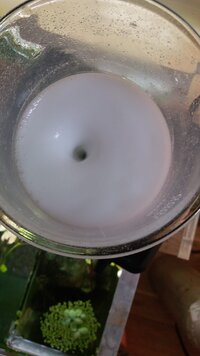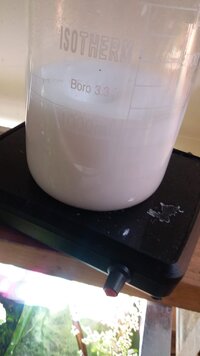hello all friends
Friends, I want to make liquid gh booster.
I have 20 liter buckets.
They are waiting until the next water change.
I want to make liquid gh booster and add it to these buckets.
That's why I want to prevent calcium magnesium accumulation when I add it to the aquarium.
Unfortunately I don't know how much to add with the spoon as I have so many tanks.
I thought of such an option.
I tried several times, but I could not get a clear image. There was always a white and hazy image.
Is it possible for me to do something like this?
Materials available to me
1-Calcium chloride
2-Calcium Sulphate
3-Magnesium Chloride
4-Magnesium Sulphate
5-Potassium Sulphate
6-Potassium Chloride
7-Potassium Oxide
8-Magnetic water mixer
Friends, I want to make liquid gh booster.
I have 20 liter buckets.
They are waiting until the next water change.
I want to make liquid gh booster and add it to these buckets.
That's why I want to prevent calcium magnesium accumulation when I add it to the aquarium.
Unfortunately I don't know how much to add with the spoon as I have so many tanks.
I thought of such an option.
I tried several times, but I could not get a clear image. There was always a white and hazy image.
Is it possible for me to do something like this?
Materials available to me
1-Calcium chloride
2-Calcium Sulphate
3-Magnesium Chloride
4-Magnesium Sulphate
5-Potassium Sulphate
6-Potassium Chloride
7-Potassium Oxide
8-Magnetic water mixer




